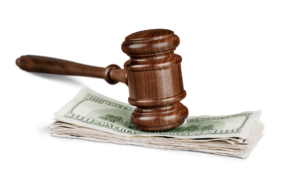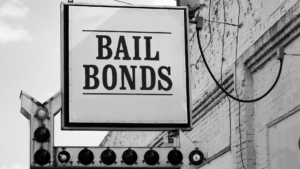If you have been arrested, or are under investigation for a crime and worry that an arrest is imminent, you likely have questions about posting bail. In Washington State, all offenses with the exception of capital murder must be considered for bail.
How is the amount of bail determined?
Bail is always determined by two primary factors: the severity of the case and a person’s criminal history. The Court will ask, “What is the person’s prior criminal record?” and “What is the alleged offense?”A person may have no prior criminal record whatsoever, but depending on the severity of the crime, the bail could be high. For instance, if arrested for murder, even with a clean record your bail may be astronomical. At the other end of the spectrum, there are certain offenses, such as misdemeanor assault involving a domestic dispute, for which the bail will be relatively low even if the person has a prior criminal record. The total amount can be argued by the prosecuting attorney and your counsel, but will ultimately be at the judge’s discretion.
You will need to go before a judge before posting bail.
In the State of Washington, the law  says a person cannot bail out until they go before a judge. This gives the judge the opportunity to consider the bail amount and whether any other restrictions should be in place (such as a no contact order). You simply can’t post bail and be released from the jail, you must go in front of a judge first. This can mean that you may spend a night, a weekend or more in jail prior to bail being set. This is the time that your attorney can be working for you to help reduce your charges and/or the amount you will pay.
says a person cannot bail out until they go before a judge. This gives the judge the opportunity to consider the bail amount and whether any other restrictions should be in place (such as a no contact order). You simply can’t post bail and be released from the jail, you must go in front of a judge first. This can mean that you may spend a night, a weekend or more in jail prior to bail being set. This is the time that your attorney can be working for you to help reduce your charges and/or the amount you will pay.
Will I get my money back?
If you pay the full amount of your bail directly to the court, you will have that money returned to you after trial. However, if you go through a bail bondsman, you will not get your money back. For example, if your bail is set at $10,000 and you must pay 10% for a bail bond, you will not be returned that $1,000. That money will be the fee of the bonding company. Few people have the ability to pay the entire amount of bail, and even the bond can be a financial strain. Do your research and go with a reputable company – I recommend the Lacey O’Malley Bail Bond Agency.
What if I can’t pay my bail?
If you can’t post your bail, you’ll be held in jail until your trial. The purpose of bail is to help ensure that a person shows up to their hearing, but it can be financially difficult for people. This article discusses the bail systems potential for discrimination against the poor.
Do you have further questions regarding a recent arrest? Consult with an attorney.
If you have a criminal matter and would like to consult with a lawyer, contact Jan Olson at Ellis, Li & McKinstry, PLLC.
You can reach Jan by calling (206) 682-0565 or by e-mail at [email protected].

